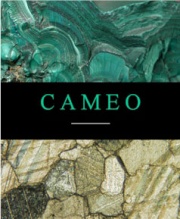Secondary Sources
These databases are good for secondary scholarship on recipes, historical culinary and medical practices, and context on Bnf Fr 640 and other manuscripts/books of secrets.
-
AATA online : abstracts of international conservation literature. This link opens in a new windowComprehensive database of 100,000 abstracts of international literature related to the preservation and conservation of material culture heritage. Literature includes journals, conference proceedings and preprints, occasional papers, relevant electronic resources, audio visual resources and dissertations and theses.
-
Art & architecture source This link opens in a new windowCovers a broad range of related subjects, from fine, decorative and commercial art, to various areas of architecture and architectural design. International in scope, Art Source includes periodicals published in French, Italian, German, Spanish and Dutch
-
BHA and RILA This link opens in a new windowA comprehensive bibliographical database of scholarly writing about the history of western art, containing abstracts and indexes of current publications in the history of art, including scholarly journals, conferences, book, exhibition reviews, and exhibition catalogues. The abstracts may be in English or in French, and index terms (descriptors) are in both English and French
-
Bibliographie de civilisation medievale This link opens in a new windowA companion to the index of articles in the International Medieval Bibliography Online, this database indexes books and book reviews on the same topics.
-
Garden, landscape & horticultural index This link opens in a new windowGarden, Landscape & Horticulture Index (GLHI) is the premier resource for access to articles about plants and gardens. Topics include horticulture, garden and landscape design and history, botany, ecology, plant and garden conservation, garden management, and horticultural therapy.
-
Google scholar This link opens in a new windowLiterally the scholarly version of Google. You can perform very complicated searches in this database and it generally produces very good (and obscure) results.
-
Historical abstracts with full text This link opens in a new windowCovers the history of the world (excluding the United States and Canada) from 1450 to the present, including world history, military history, women's history, and history of education.
-
History of science, technology, and medicine This link opens in a new windowThis is an EBSCO database that indexes several resources, including the Wellcome Library for the History and Understanding of Medicine. Keep your searches simple, i.e. “experiment” AND “Renaissance” or “making” AND “Sixteenth century”.
-
International bibliography of art This link opens in a new windowThe bibliography provides authoritative coverage of international scholarship within the following broad parameters: European art from late antiquity to the present, American art from the colonial era to the present, and global art since 1945 ; Visual arts in all media, plus decorative and applied arts, museum studies and conservation, archaeology and classical studies, antiques and architectural history, and related fields.
-
International medieval bibliography online This link opens in a new windowIndexes articles, notes, and similar literature on medieval subjects in journals, Festschriften, conference proceedings, and collected essays. Covers all aspects of medieval studies within the date range of 400 to 1500 for the entire continent of Europe, the Middle East and North Africa for the period before the Muslim conquest and parts of those areas subsequently controlled by Christian powers.
-
Iter : gateway to the Middle Ages and Renaissance. This link opens in a new windowContains electronic resources for researchers in the study and teaching of the Middle Ages and Renaissance (400-1700). Enables users to access citations in journal, book, and reviews databases; provides online access to Paul Oskar Krisetller's Iter Italicum (a finding list of Renaissance humanistic manuscripts).
-
JSTOR. This link opens in a new windowTry a variety of keyword searches, i.e. “recipe” AND “bread” AND “sixteenth century”; or something like “experiment” AND “Renaissance” for broader results.
-
Project Muse. This link opens in a new windowFull-text versions of peer-reviewed journals from many of the world's leading university presses and scholarly societies, as well as thousands of ebooks, with emphasis on humanities and social sciences.
